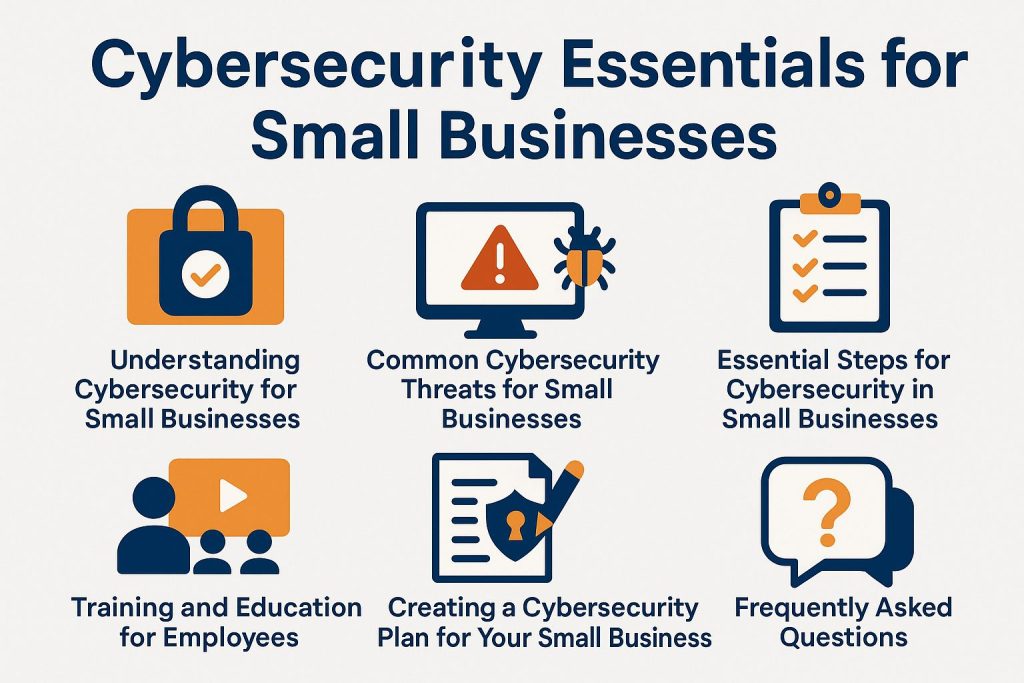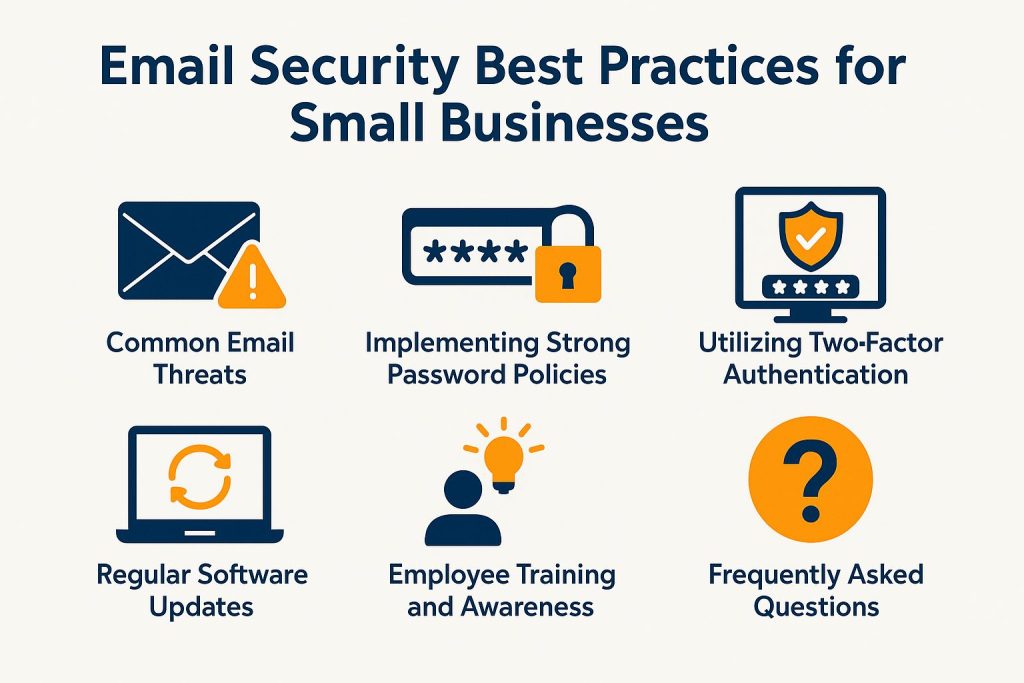How Small Businesses Can Compete with Big Corporations Using Managed IT Services

Large corporations dominate the landscape. Small businesses feel pressure to keep up. However, leveraging managed IT services offers a strategic advantage that can level the playing field. By addressing the unique challenges faced by smaller enterprises, these services enhance operational efficiency, promote business continuity, and provide access to technical expertise. Small businesses can implement these solutions to grow and innovate.
Understanding the Competitive Landscape with Technology Solutions

In an increasingly competitive market, understanding the landscape of managed IT services and technology partnerships is essential for businesses seeking to maintain a competitive advantage.
For small businesses, managed IT services offer small businesses tailored solutions. These solutions fit tighter budgets, support digital transformation, and meet specific industry needs. These organizations benefit from cloud services like AWS and Microsoft Azure, which provide scalability and IT scalability without significant upfront costs.
Conversely, large corporations typically operate on extensive, multi-vendor systems that necessitate complex integrations. Current trends, including the shift to remote work and heightened cybersecurity threats, underscore the importance of customizable IT strategies.
Companies should partner with providers that offer flexible services and proactive support. Managed services provide 24/7 support, helping businesses stay agile in this dynamic environment. Our Rutherfordton IT Services explain these benefits in more detail.
Challenges Faced by Small Businesses in IT Management
Small businesses frequently encounter distinct IT challenges, including limited budgets, resource constraints, lack of IT infrastructure, and a lack of in-house expertise. Managed IT services can address these challenges effectively.
For example, outsourcing and IT consulting can reduce staffing costs, as providers generally maintain a team of experts, presenting a more cost-effective solution than hiring full-time employees.
Additionally, services such as cloud computing and infrastructure as a service (IaaS) can decrease hardware expenses and enhance scalability. Platforms like Microsoft Azure or AWS help businesses optimize IT costs.
Managed services offer 24/7 support. This ensures companies get help anytime, improving reliability and reducing downtime.
Benefits of Managed IT Services for Financial Savings

Managed IT services provide numerous benefits, including cost savings and access to specialized expertise, enhanced operational efficiency. By outsourcing IT functions, businesses can reduce labor costs and minimize overhead expenses associated with maintaining in-house teams.
For example, a small company that utilizes managed services may achieve annual savings of up to 30% on IT costs, and those interested in exploring detailed strategies can benefit from insights shared by Asheville IT Service Experts in their guide on 5 Ways to Cut Costs.
These services give businesses access to a team of experts in cybersecurity measures and cloud management, ensuring that systems remain robust and secure. Furthermore, regular system maintenance and support can significantly decrease downtime, leading to improved productivity.
By adopting managed IT services, companies can concentrate on their core business objectives while delegating IT challenges to specialists.
Cost Efficiency and Resource Allocation
Utilizing managed IT services for cost efficiency can reduce operational costs by up to 30%, enabling businesses to allocate resources more effectively.
For instance, a mid-sized company reduced its IT overhead from $150,000 to $105,000 annually. This change outsourced helpdesk support and server maintenance. It let internal staff focus on strategic initiatives.
A retail chain saved 25% on software licensing by using a bundled pricing model. Businesses can maximize savings by analyzing their needs and choosing the right service plan. This leads to better use of technology budgets.
Access to Expertise in IT Strategy
Managed IT services give businesses immediate access to IT expertise. This enhances their technology without needing extensive employee training.
For example, a small retail business partnered with a managed IT service provider to improve its cybersecurity. By employing specialized tools such as firewalls and intrusion detection systems, the business achieved a 40% reduction in potential breaches.
Similarly, a large financial firm utilized cloud computing expertise from its service provider to transition over 500 employees to a remote work setup seamlessly. This move improved efficiency and ensured compliance. It shows how tailored guidance can turn IT challenges into advantages.
Strategies for Implementation and IT Governance
Implementing managed IT services needs careful planning and governance. This aligns technology with business goals. The process begins with a thorough assessment of specific needs; this involves evaluating the current infrastructure, identifying gaps, and defining the desired outcomes. For a comprehensive understanding, reviewing our IT Infrastructure Management Guide for Beginners can provide valuable insights.
Next, research and choose a provider known for meeting industry standards. During this selection phase, utilizing tools such as Gartner or IT research reports can provide reliable evaluations.
Measure success with clear performance metrics, such as downtime reduction and user satisfaction. It is important to regularly review these metrics to ensure ongoing alignment with business goals and to make adjustments to services as necessary.
Case Studies of Success in Business Growth
Examining successful case studies demonstrates how various organizations have effectively utilized managed IT services to drive growth and enhance operational efficiency.
One notable example involves a healthcare provider that encountered challenges with data security, compliance issues, and IT risk assessment. By adopting a managed IT service, the organization was able to streamline its IT infrastructure, resulting in a 30% reduction in compliance-related costs and improved patient data security.
Another case is a retail chain that had frequent system outages. A managed service provider implemented a proactive monitoring solution, which successfully reduced downtime by 40%. This reduction in downtime subsequently led to a 25% increase in online sales traffic.
These outcomes show the significant advantages of using managed IT services. See also Asheville’s Best IT Support and Client Success Stories.
Frequently Asked Questions on IT Solutions
What are managed IT services and how can they help small businesses compete with big corporations in the local market?
Managed IT services mean outsourcing IT support to a third-party. These services can help small businesses by providing them with the same level of IT support and resources as big corporations, without the high costs and complexity of managing their own IT infrastructure.
What are the top benefits of using managed IT services for small businesses, including digital marketing advantages?
Some of the top benefits include cost savings, increased efficiency, access to advanced technology and expertise, improved security and data protection, and the ability to focus on core business tasks instead of IT management.
How can managed IT services help small businesses level the playing field with big corporations and improve customer service?
Managed IT services provide small businesses with access to the same advanced technology and resources as big corporations. This allows them to compete on a more equal footing and stay ahead in the fast-paced business world.
What types of IT services are typically included in managed IT service packages?
Managed IT service packages can vary, but they usually include services such as network and server management, data backup and recovery, cybersecurity, cloud computing, and IT consulting.
Can small businesses customize their managed IT service package to fit their specific needs?
Yes, most providers offer customizable packages. These packages fit the unique needs and budget of each small business.
How can small businesses ensure they are choosing the right managed IT service provider?
Small businesses should research. They need to choose a reputable managed IT service provider with experience in their industry. They should consider customer reviews, pricing, and the support and communication level offered by the provider.




